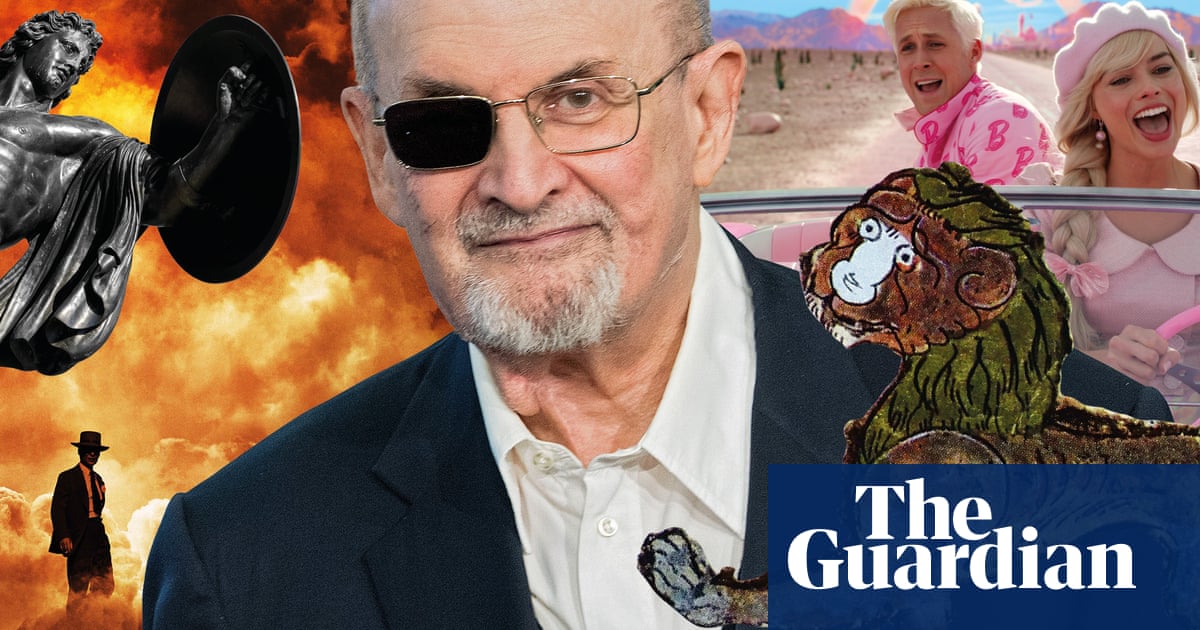Core Concepts
The author explores the significance of mythological stories in understanding complex human virtues and conflicts, emphasizing that goodness doesn't always prevail.
Abstract
Salman Rushdie delves into the profound impact of mythological tales like the Panchatantra on his writing and worldview. He highlights how these stories do not moralize but rather depict cunning strategies prevailing over virtue. Rushdie reflects on the timeless relevance of these narratives in a world marked by treachery and shamelessness. Moreover, he contemplates the intricate relationship between art, love, and death through mythologies like Orpheus and Eurydice. Rushdie emphasizes that peace often comes at a bloody price according to various myths from different cultures. He contrasts idealized notions of peace with harsh realities depicted in contemporary movies like Oppenheimer and Barbie. The author muses on the challenges faced by freedom of expression in today's society, where authoritarianism threatens artistic liberty from both left-wing and right-wing ideologies. Rushdie advocates for defending free speech against abuse by promoting better narratives and countering hate with love. He acknowledges the overwhelming support he received after an attack as a testament to the enduring belief in free speech worldwide.
‘The good guys don’t always win’: Salman Rushdie on peace, Barbie and what freedom cost him
Stats
"21 of those 22 occasions"
"my fourth novel"
"15 months ago"
Quotes
"The outrage that was expressed after the attack on me was born of horror that the core value of a free society had been viciously and ignorantly assaulted."
"To answer bad speech with better speech, to counter false narratives with better narratives, to answer hate with love."
"The good guys don’t always win."
Key Insights Distilled From
by Salman Rushd... at www.theguardian.com 11-08-2023
https://www.theguardian.com/books/2023/nov/08/salman-rushdie-peace-freedom-barbie-myths-fables
Deeper Inquiries
How can modern society balance freedom of expression with preventing its abuse?
In modern society, balancing freedom of expression with preventing its abuse is a complex challenge. One approach is to uphold the principle that free speech should be defended fiercely and defined broadly. This means countering false narratives with better narratives, hate with love, and bad speech with better speech. It also involves promoting critical thinking skills to help individuals discern between truth and falsehood in an age where misinformation spreads easily online. Additionally, defending speech that may offend us is crucial as it upholds the essence of free expression. By encouraging civil discourse, promoting media literacy, and standing against censorship from both authoritarian forces and well-intentioned but misguided efforts, societies can navigate this delicate balance effectively.
What role do mythologies play in shaping cultural values across different societies?
Mythologies have played a significant role in shaping cultural values across different societies throughout history. These stories often encapsulate profound truths about human nature, morality, conflict, and societal dynamics in a way that resonates across generations. Mythological tales provide frameworks for understanding complex concepts such as love, death, power struggles, and heroism through symbolic narratives that transcend time and place. By exploring myths from various cultures like Greek mythology or Indian folklore like the Panchatantra stories mentioned by Salman Rushdie in the context provided above), people gain insights into universal themes while appreciating diverse perspectives on life's fundamental questions.
How can artists contribute to defending freedom amidst increasing threats from authoritarianism?
Artists play a crucial role in defending freedom amidst rising threats from authoritarianism by using their creative expressions to challenge oppressive systems and advocate for social change. Through their work—whether it be literature like Rushdie's novels or other forms such as visual arts or music—artists can shine a light on injustices, promote empathy and understanding among diverse communities,
and inspire critical reflection on prevailing norms.
By pushing boundaries,
raising awareness about human rights violations,
and amplifying marginalized voices,
artists contribute significantly to safeguarding freedoms of expression
and resisting attempts at censorship or control by repressive regimes.
Their ability to evoke emotions,
spark dialogue,
and provoke thought makes them powerful agents of resistance
against encroachments on liberty
in all its forms within society.
0
